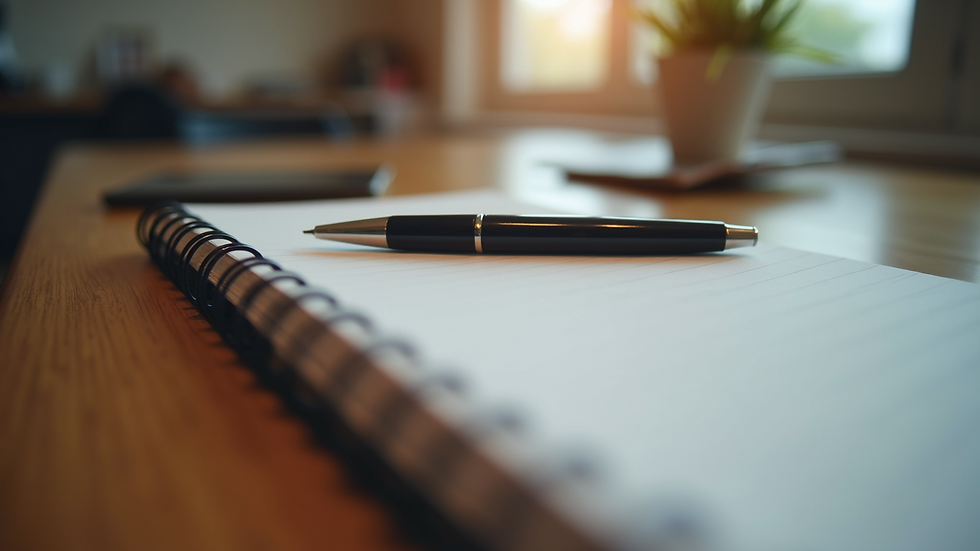Simple Relaxation Techniques to Combat Stress
- thegreydirector
- Sep 24, 2025
- 4 min read
Stress is a common part of life, but managing it effectively can make a big difference to your overall well-being. When stress builds up, it can affect your mood, health, and productivity. Fortunately, there are simple stress relief techniques that anyone can use to feel more relaxed and balanced. This article explores practical ways to reduce stress and improve your mental state with easy-to-follow methods.
Understanding Stress Relief Techniques
Stress relief techniques are methods designed to help calm your mind and body. They work by reducing the physical and emotional effects of stress. When you practice these techniques regularly, you can lower your heart rate, ease muscle tension, and clear your mind. This helps you feel more in control and less overwhelmed.
Some common stress relief techniques include deep breathing, meditation, and physical activity. These methods are accessible and do not require special equipment or training. You can do them at home, at work, or even outdoors. The key is consistency and finding what works best for you.
Benefits of Stress Relief Techniques
Improved mood: Reducing stress can help you feel happier and more positive.
Better sleep: Relaxation helps you fall asleep faster and enjoy deeper rest.
Increased focus: A calm mind improves concentration and decision-making.
Lower blood pressure: Stress relief can reduce the risk of heart problems.
Enhanced immune system: Managing stress supports your body’s natural defenses.

Effective Stress Relief Techniques You Can Try Today
There are many ways to relieve stress, but some techniques are especially effective and easy to incorporate into your daily routine. Here are some of the best stress relief techniques that you can start using right now:
1. Deep Breathing Exercises
Deep breathing is one of the simplest and most powerful ways to reduce stress. It helps slow your heart rate and relax your muscles. To practice deep breathing:
Sit or lie down comfortably.
Breathe in slowly through your nose for a count of four.
Hold your breath for a count of four.
Exhale slowly through your mouth for a count of six.
Repeat this cycle for 5 to 10 minutes.
This technique can be done anywhere and anytime you feel stressed.
2. Progressive Muscle Relaxation
This method involves tensing and then relaxing different muscle groups in your body. It helps you become more aware of physical tension and release it. To try progressive muscle relaxation:
Find a quiet place to sit or lie down.
Start with your feet and work your way up.
Tense each muscle group for 5 seconds, then relax for 10 seconds.
Notice the difference between tension and relaxation.
This practice can reduce muscle stiffness and promote a sense of calm.
3. Mindfulness Meditation
Mindfulness meditation focuses on being present in the moment without judgment. It helps you observe your thoughts and feelings without getting caught up in them. To practice mindfulness:
Sit quietly and focus on your breath.
Notice the sensation of air entering and leaving your nostrils.
When your mind wanders, gently bring your attention back to your breath.
Start with 5 minutes and gradually increase the time.
Regular mindfulness meditation can improve emotional resilience and reduce anxiety.

4. Physical Activity
Exercise is a natural stress reliever. It releases endorphins, which are chemicals in the brain that improve mood. You don’t need to do intense workouts; even a short walk can help. Some ideas include:
Walking or jogging in a park.
Doing yoga or stretching exercises.
Dancing to your favourite music.
Gardening or light housework.
Aim for at least 30 minutes of moderate activity most days of the week.
5. Creative Outlets
Engaging in creative activities can distract your mind from stress and provide a sense of accomplishment. Some options are:
Drawing or painting.
Writing in a journal.
Playing a musical instrument.
Cooking or baking.
These activities can be relaxing and enjoyable, helping you unwind after a busy day.
What are some relaxation techniques for stress?
If you want to explore more ways to manage stress, there are many relaxation techniques for stress that can be very effective. These include:
Guided imagery: Visualising peaceful scenes to calm your mind.
Aromatherapy: Using essential oils like lavender or chamomile to promote relaxation.
Biofeedback: Using devices to learn how to control bodily functions like heart rate.
Tai Chi or Qigong: Gentle martial arts that combine movement and meditation.
Each person responds differently to these techniques, so it’s worth trying a few to see which ones suit you best. For more detailed information and resources, you can visit relaxation techniques for stress.

Tips for Making Stress Relief a Habit
To get the most benefit from stress relief techniques, it’s important to make them part of your daily routine. Here are some tips to help you stay consistent:
Set a regular time: Choose a specific time each day for your relaxation practice.
Create a calm space: Find a quiet, comfortable spot free from distractions.
Start small: Begin with just a few minutes and gradually increase the duration.
Use reminders: Set alarms or notes to prompt you to take breaks for relaxation.
Combine techniques: Mix different methods to keep your routine interesting.
Be patient: It takes time to notice the full benefits, so keep practicing.
By making stress relief a priority, you can improve your mental and physical health over time.
Embracing a Calmer Lifestyle
Stress is unavoidable, but how you respond to it can change everything. Using simple stress relief techniques regularly can help you stay calm, focused, and healthy. Whether it’s deep breathing, meditation, or a walk in nature, these practices offer practical ways to manage daily pressures.
Remember, the goal is not to eliminate stress completely but to handle it in a way that supports your well-being. Start with small steps, be consistent, and enjoy the positive changes that come with a calmer mind and body. Your future self will thank you for it.






Comments